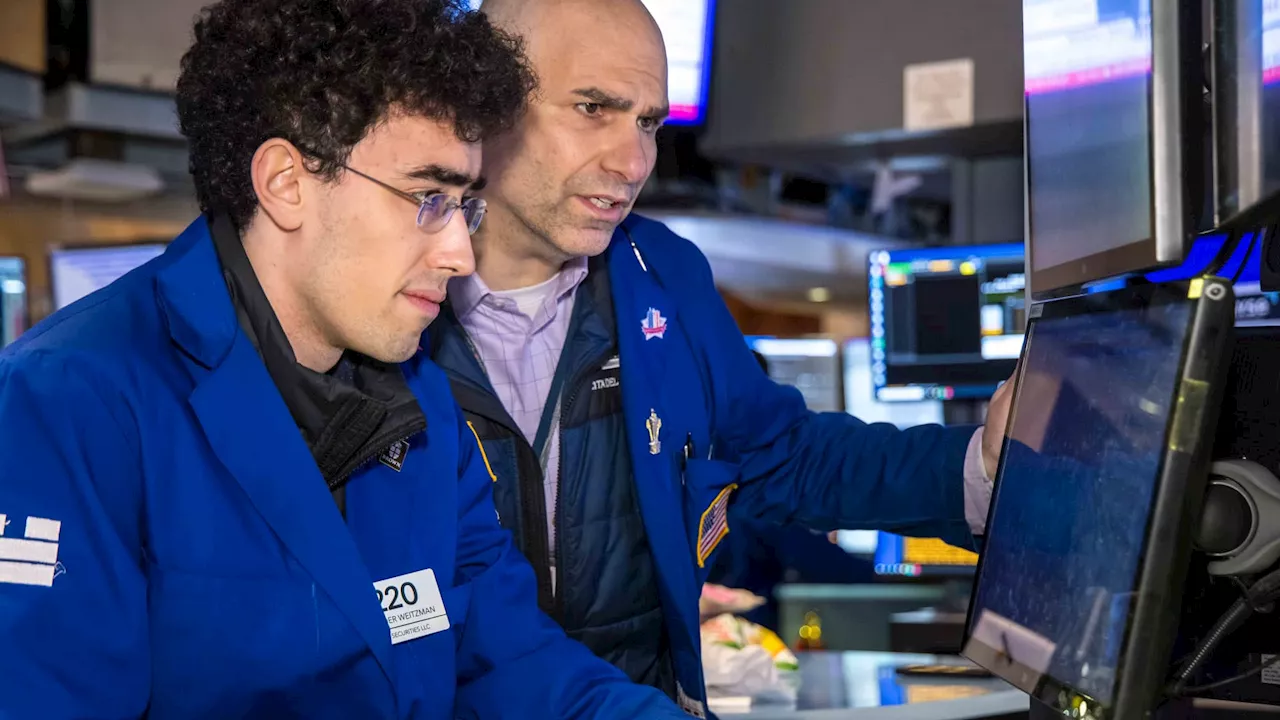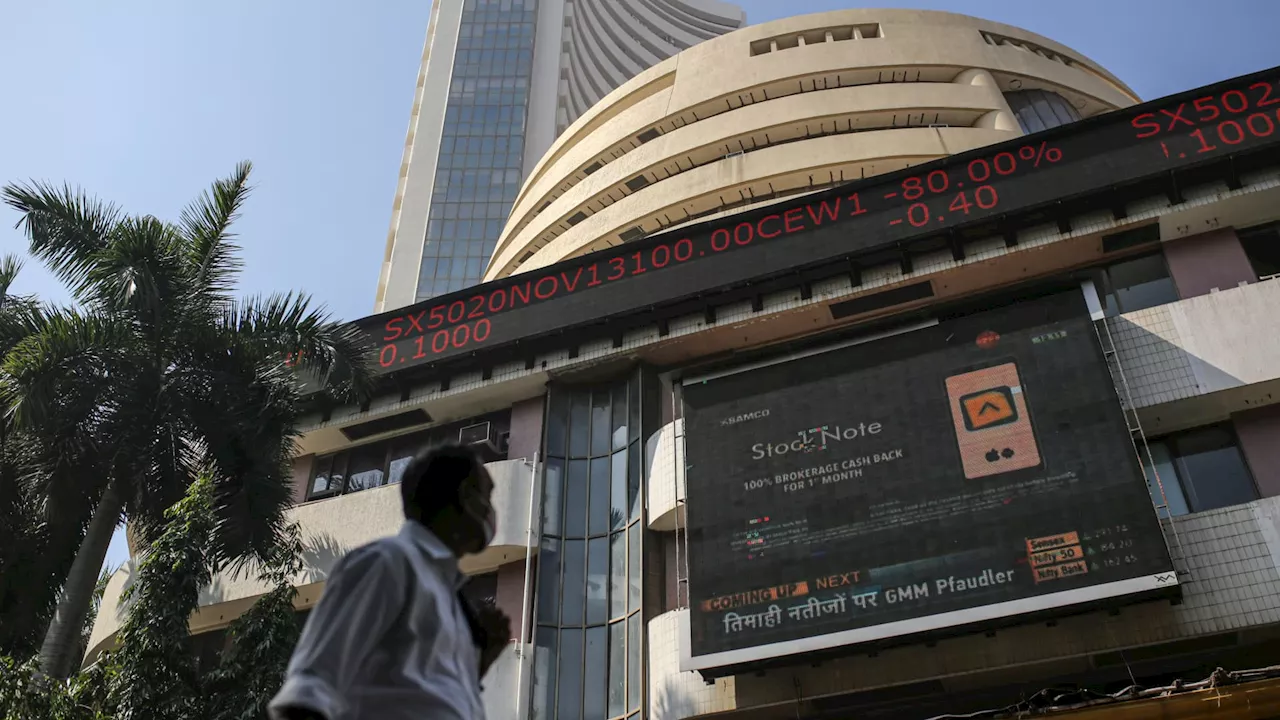Indian stock markets are experiencing a decline due to foreign investor withdrawals prompted by economic concerns. Analysts see this as a healthy correction, but the near-term outlook remains uncertain.
Indian equities have been experiencing a decline since September, driven by foreign investors exiting their holdings due to concerns about a slowdown in the country's economy. Analysts view this downturn as a 'healthy correction,' with sectors like real estate, energy, and autos posting the most significant losses, according to Goldman Sachs data. The pessimism stems from a combination of lower-than-expected earnings and sluggish economic growth in India's second fiscal quarter.
Several financial institutions have downgraded their economic growth forecasts for India. Capital Economics predicts a 'softer patch' for the Indian economy that will persist for several quarters, leading to underperformance of local equities compared to other major benchmarks. HSBC has also downgraded its rating on Indian equities to 'neutral' from 'overweight,' cutting its Nifty 50 earnings growth forecast for fiscal year 2025 to 5% from 15%. The outflow of foreign portfolio investor (FPI) funds from Indian equities has been dramatic, plunging by 99% to just $124 million in 2024 compared to the previous year. In recent weeks, foreign investors have withdrawn approximately $8.3 billion from Indian equities as of January 28. This trend reflects a global shift towards U.S. equities, perceived as safer and offering better returns, according to James Thom, senior investment director at Abrdn.India's economic slowdown coincides with rising U.S. Treasury yields, which make bonds more attractive, further diverting investments away from the stock market. Moreover, profit-booking by FPIs who have realized substantial gains in Indian equities is contributing to the downward pressure on prices. While foreign investors are pulling out, domestic investors have been injecting capital into the Indian market, mitigating a potentially deeper decline. Since October, domestic investors have poured approximately $27 billion into Indian equities, according to Manulife. However, this influx, coupled with a surge in retail investors, has led to a mini-bubble that has been deflating since September.Despite the current challenges, some analysts remain optimistic about the long-term prospects of Indian equities. They view the current correction as a necessary consolidation after a period of strong performance following the Covid-19 pandemic. Longer-term fundamentals remain strong, and a rebound is anticipated as valuations become more reasonable and attract new investors. Sectors like domestic IT and private banking are seen as particularly attractive opportunities in the Indian market
INDIAN EQUITIES FOREIGN INVESTORS ECONOMIC SLOWDOWN PROFIT BOOKING DOMESTIC INVESTORS VALUATIONS MARKET CORRECTION
United States Latest News, United States Headlines
Similar News:You can also read news stories similar to this one that we have collected from other news sources.
 Google and Apple Face UK Investigation and Indian Pressure Over App StoresThe tech giants are under scrutiny from the UK's Competition and Markets Authority (CMA) for their mobile ecosystems and are facing pressure from the Indian government to offer a state-backed app store.
Google and Apple Face UK Investigation and Indian Pressure Over App StoresThe tech giants are under scrutiny from the UK's Competition and Markets Authority (CMA) for their mobile ecosystems and are facing pressure from the Indian government to offer a state-backed app store.
Read more »
 Morgan Stanley tops estimates on strong equities and fixed income trading revenueThe bank's massive wealth management business will be helped by high stock market values in the fourth quarter, which inflates the management fees it collects.
Morgan Stanley tops estimates on strong equities and fixed income trading revenueThe bank's massive wealth management business will be helped by high stock market values in the fourth quarter, which inflates the management fees it collects.
Read more »
 How has USD strength impacted European equities?How has USD strength impacted European equities?
How has USD strength impacted European equities?How has USD strength impacted European equities?
Read more »
 Vanguard Suggests Shifting to Bonds: A Guide to Moving Money from Equities to Fixed IncomeVanguard's recent suggestion to rebalance portfolios towards a 40/60 stock/bond allocation, driven by shrinking equity premiums and rising bond yields, prompts a guide for investors considering this shift. This guide navigates the complexities of bond investing, emphasizing the importance of choosing funds over individual bonds, and addresses key considerations such as duration, credit quality, and inflation exposure.
Vanguard Suggests Shifting to Bonds: A Guide to Moving Money from Equities to Fixed IncomeVanguard's recent suggestion to rebalance portfolios towards a 40/60 stock/bond allocation, driven by shrinking equity premiums and rising bond yields, prompts a guide for investors considering this shift. This guide navigates the complexities of bond investing, emphasizing the importance of choosing funds over individual bonds, and addresses key considerations such as duration, credit quality, and inflation exposure.
Read more »
 US Equities Dominate Again in 2024, Leaving Global Markets in the DustStocks Analysis by James Picerno covering: Vanguard Total Stock Market Index Fund ETF Shares, Vanguard Total Bond Market Index Fund ETF Shares, Vanguard Global ex-U.S. Real Estate Index Fund ETF Shares. Read James Picerno's latest article on Investing.
US Equities Dominate Again in 2024, Leaving Global Markets in the DustStocks Analysis by James Picerno covering: Vanguard Total Stock Market Index Fund ETF Shares, Vanguard Total Bond Market Index Fund ETF Shares, Vanguard Global ex-U.S. Real Estate Index Fund ETF Shares. Read James Picerno's latest article on Investing.
Read more »
 Another Strong Year for U.S. Equities in 2025?Capital Economics predicts continued strong performance for U.S. equities in 2025, driven by AI enthusiasm and U.S. economic outperformance. Global equities are expected to fare poorly due to another trade war.
Another Strong Year for U.S. Equities in 2025?Capital Economics predicts continued strong performance for U.S. equities in 2025, driven by AI enthusiasm and U.S. economic outperformance. Global equities are expected to fare poorly due to another trade war.
Read more »
